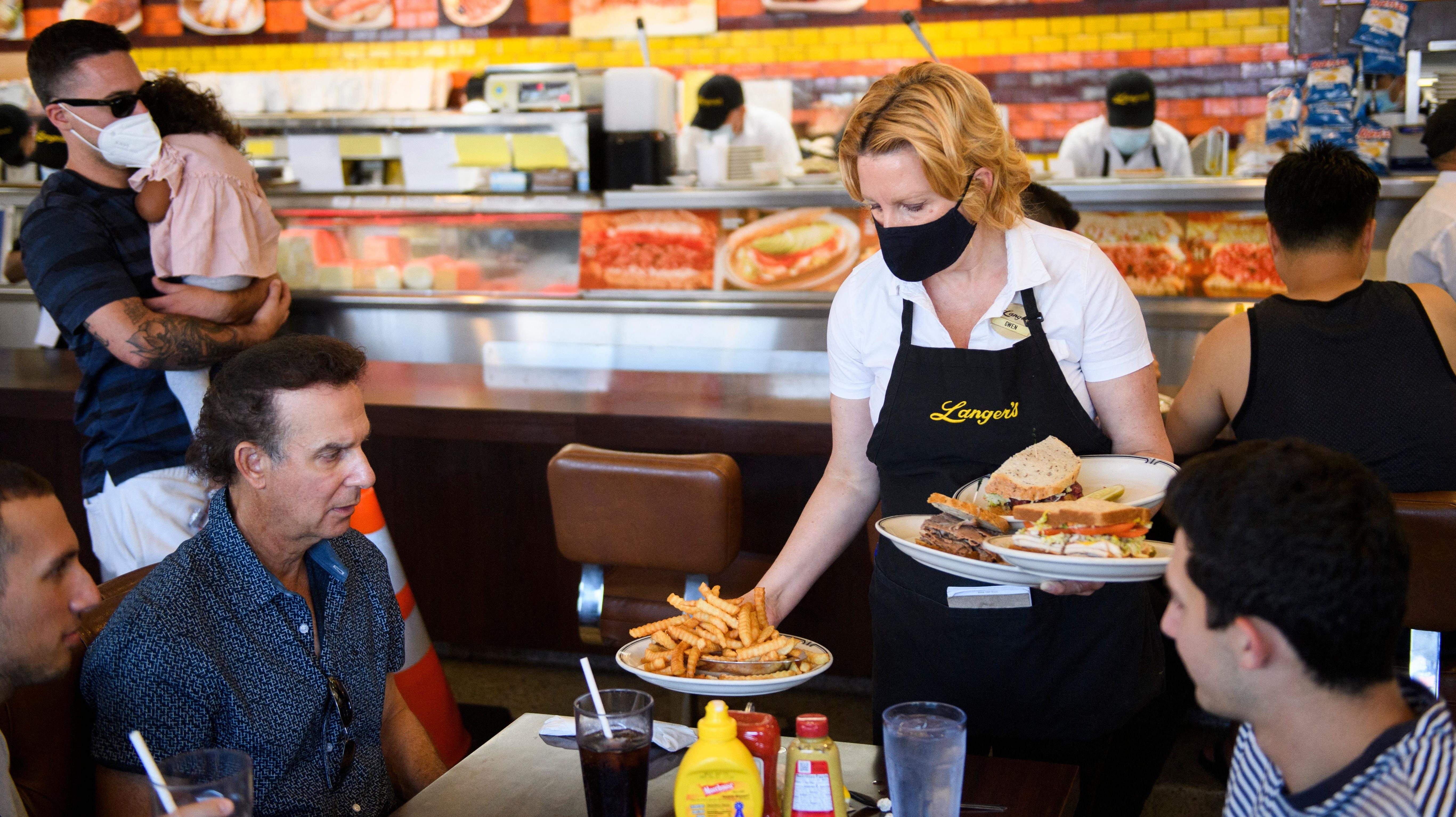Why Can't Restaurant Workers Be Treated More Like Office Workers?
Bars and restaurants need to be included in conversations about changing post-pandemic workplaces.
We're all navigating how to return to work as restrictions ease and some sense of normalcy is dangled above us like a carrot on a stick. But the biggest question now being faced is: Do we really want to go back to "normal"?
There has been endless talk about the ways in which the workplace will change after two years of remote interactions and increased awareness around employee burnout and generally low morale following the great resignation. There is discussion of preventing the spread of germs, shorter work weeks, and hybrid systems that don't require employees to commute to an office every day. But these topics all relate pretty exclusively to office workers; the conversation seems void of solutions for bar and restaurant workers. We should absolutely consider these professions part of the conversation, since many of the proposed adjustments to working life can be universal.
How restaurants can function like offices
New York City–based fast casual restaurant DIG launched a pilot program back in 2020 testing out four-day work weeks, and is now expanding the practice to all 500 of its hourly employees, Fortune reports. The idea first came about at the beginning of the pandemic when shifts were being adjusted to work in rotations to avoid spreading COVID—that's when one manager discovered that his workers preferred working four 10-hour shifts if they knew they would then have three days off.
Maintaining a work-life balance has become a more common ideology since most of the workforce has been housebound, but it's rarely been something touted in the restaurant industry, even for part-time employees. There's a strong philosophy that you must eat, live, and breathe restaurant work; this belief is passed down from owners and chefs who do make the industry their whole life. Allowing a four-day work week for full-time employees can begin to change that.
"If the suits can do it, why can't we?" DIG's director of operations Brian Coakley says to Fortune about shifting the nature of restaurant work. "Why can't we do it in the restaurant industry?"
Recently, Chicago-based restaurant Rockwell's Neighborhood Grill closed for the day due to non-COVID illness. A post on its Facebook page read:
Prior to COVID, going to work sick was a normal part of life. Something even worn as a badge of honor. However, if we're ever going to get back to 'normal' we have to learn from the last two years and stay home if we're sick.
What may make the most sense in the restaurant industry—staying home if you're sick so you don't pass along germs while handling people's food—hasn't been a common practice. It needs to become standard not to force sick workers to come in for their shifts, and to build in more paid sick days and other benefits for restaurant workers so they're not losing out on money when they can't come to work—you know, the same thing we typically do for folks who work in office settings. It's the reason that movements like the unionization of Starbucks are starting to pop up left and right.
As offices move to more customizable schedules and support systems for workers, so should bars and restaurants. Added benefits and perks for returning to work should not be reserved for corporate 9-to-5ers alone.
